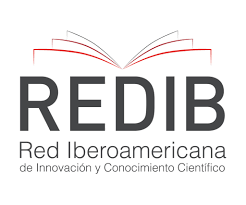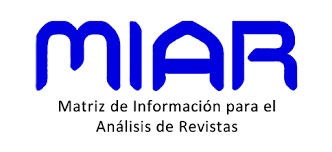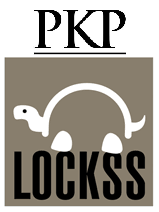Integral Formation/Comprehensive Education of the University Student Through Literary Texts
DOI:
https://doi.org/10.51743/cpe.389Keywords:
classics, integral formation/comprehensive education, liberal education, literature, virtuesAbstract
One of the main tasks of the university, according to J.H. Newman, consists of the integral formation of the students; to educate wise people, with the capacity to integrate reality, seekers of the meaning of life, resilient and committed to working for the common good. Dedication to the formation of the character of the young person is today an emerging need in institutions of Higher Education. This article aims to show how that is possible to accomplish through the reading and analysis of a good selection of literary texts, ancient and modern, reflecting on the situations and attitudes of the characters, to form in intellectual, civic and moral virtues, providing the young student with a practical wisdom.
Downloads
References
Ayllón, J.R. (2022). Qué leer cuanto antes. Homo Legens.
Bohlin, K. E. (2020). Educando el carácter a través de la Literatura, Didaskalos.
Bohlin, K. E. Practical Wisdom (2023). www.Karenbohlin.com
Carreira Zafra, C. (2020) Literatura y mímesis: fundamentos para una educación del carácter, Octaedro.
Cerrillo, P. (2013). La formación del lector literario: la “competencia literaria”. En S. Álvarez Ledo, M. del C. Ferreira Boo y M. Neira Rodríguez (Ed.), De la Literatura infantil a la promoción de la lectura (17-48), CEU Ediciones.
Juan Pablo II, Ex corde Ecclesiae (1990) https://www.vatican.va/content/john-paul ii/es /apost_constitutions/ documents/hf_jp-ii_apc_15081990_ex-corde-ecclesiae.html
Lickona, T. y Davidson, M., A (2005). Report to the Nation: Smart & Good High Schools. Integrating Excellence and Ethics for Success in School, Work, and Beyond, Center for the 4th and 5th Rs (Respect and Responsibility). Washington, D.C.: State University of New York College at Cortland.
López Quintás, A. (2000). El análisis del texto literario y su papel formativo. En P. Pérez-Ilzarbe y R. Lázaro (Eds.). Verdad, bien y belleza: cuando los filósofos hablan de valores. Cuadernos de Anuario Filosófico. Serie Universitaria, nº103, pp. 147-168.
Morán Rodríguez, C. (2019). Prohibida la entrada a mayores: infancia y adolescencia en la narrativa española actual. En P. Celma Valero y C. Morán Rodríguez (Coords.). La verdadera patria. Infancia y adolescencia en el relato español contemporáneo, pp. 7-33, Iberoamericana Vervuert. DOI: https://doi.org/10.31819/9783964568885-001
Moreno, V. (2015). La formación literaria. [Archivo PDF] http:// www.pamiela.com/media/formacion_literaria.pdf
Navarro Durán, R. (1996). Por qué hay que leer los clásicos. Ariel.
Newman, J. H. (2014). La idea de la universidad. Encuentro.
Ricoeur, P. (1999). La lectura del tiempo pasado. Memoria y olvido. Arrecife producciones.
Sanjuán Álvarez, M. (2014). Leer para sentir. La dimensión emocional de la educación literaria. Impossibilia. Revista Internacional de Estudios Literarios, (8), pp. 155-178. https:// doi.org/10.32112/2174.2464.2014.105
Torralba, J. (2020). Una educación liberal. Encuentro. Universidad de Navarra. La educación del carácter en las universidades. Un documento marco para el florecimiento, 2023, pp. 1-12. https://www.unav.edu/documents/10162/42659582/educacion-caracter-es.pdf
Zayas, F. (2012). 10 ideas clave: la competencia lectora según PISA. Reflexiones y orientaciones didácticas. Graó.
Downloads
Published
How to Cite
Issue
Section
License
The author reserves the rights (copyright) of the published works, and the journal encourages and allows their reuse, from the preprint. The works are published in the electronic edition of the journal under a license "Creative Commons Attribution / Attribution-NonCommercial 4.0 International Public License - CC BY-NC 4.0", and can be copied, used, disseminated, transmitted and publicly exhibited.
The author / s partially transfer the property rights (copyright) of this work for the printed and online editions, provided that:
- The authorship and original source of its publication (magazine, publisher and URL of the work) is cited.
- Are not used for commercial purposes.
- The existence and specifications of this user license are mentioned.
It also declares to have respected the ethical principles of research and to be free from any conflict of interest.
"C.P.E." encourages the authors and the scientific community to the maximum promotion and dissemination of the works in their final version through:
1) Your list of contacts (emails) and social networks (Facebook, Twitter, LinkedIn ...).
2) Institutional repository of your University and public repositories (Mendeley, Cosis ...).
3) Scientific social networks (ResearchGate, Academia.edu, Kudos ...).
4) Personal or institutional website, blog, etc.
5) Google Scholar, ORCID, ResearchID, ScopusID, Dimensions, PlumX ...
6) Printed copies purchased directly and sent to specialists for reading and subsequent citation if appropriate.




















1.png)
1.png)

1.png)





.png)
.png)

.png)
1.png)
1.png)
